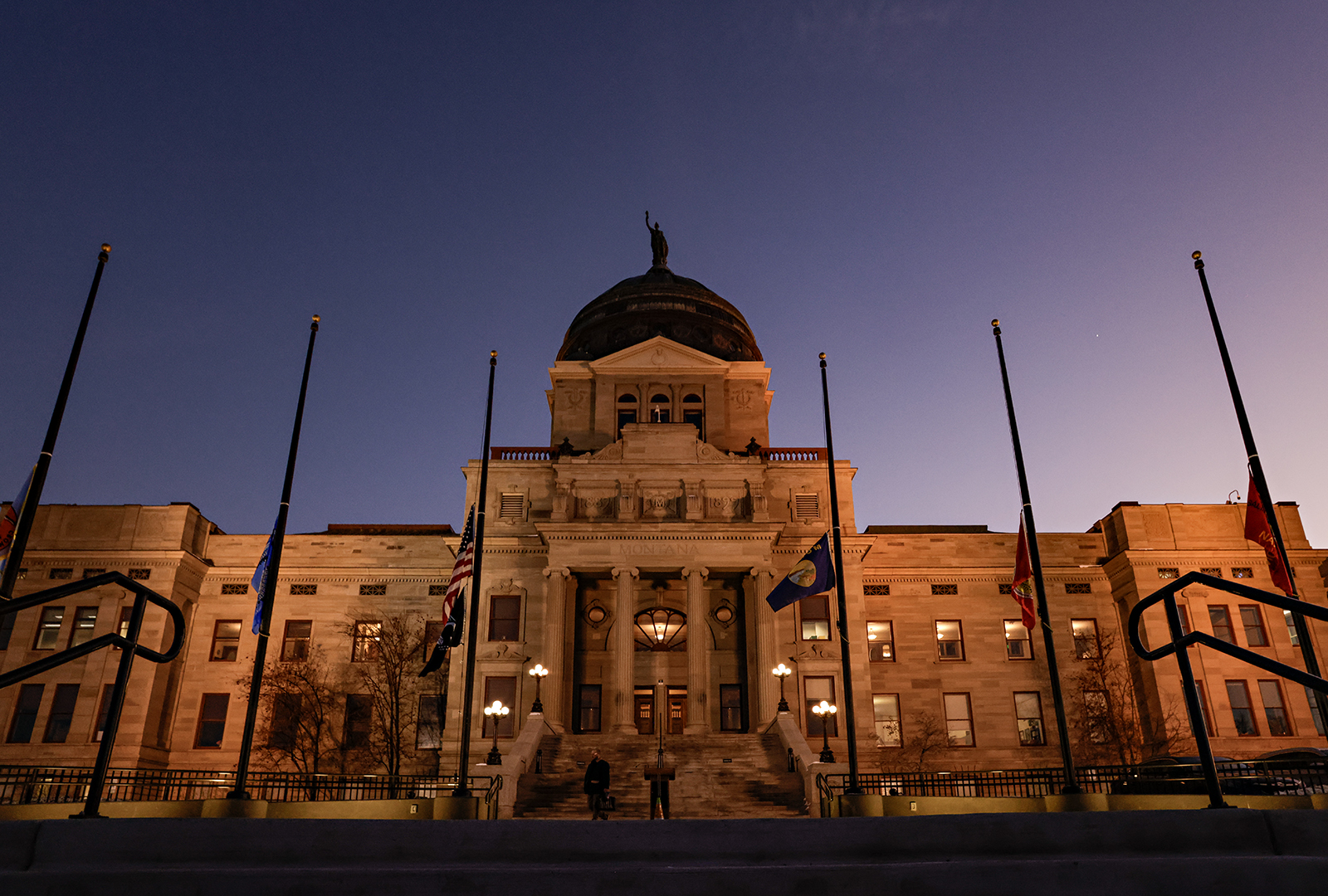Business Leaders Highlight Medicaid Expansion, Education and Bed Tax as Priorities for 69th Legislature
Flathead County business advocates emphasized their support for healthcare, education and tourism at a Jan. 21 Kalispell Chamber of Commerce luncheon
By Maggie Dresser
As lawmakers brace for hundreds of bills to hit the floor at the 69th Legislature, local business leaders outlined their priorities at the Jan. 21 Kalispell Chamber of Commerce luncheon at Flathead Valley Community College, emphasizing opposition to bills that would reduce tourism revenue and support for Medicaid expansion and education.
With Medicaid expansion set to expire this year, healthcare representatives stressed the serious financial consequences the state will face if lawmakers fail to reauthorize the program under House Bill 245.
Historically, Medicaid has applied to the elderly population, disabled individuals, children and pregnant women before it was expanded in 2015 to cover adults at 138% of the federal poverty level. The expansion program, 90% of which is funded by the federal government, will expire on June 1 if lawmakers do not vote to reauthorize it.
A vote against reauthorizing Medicaid expansion would affect 80,000 Montanans while impacting 10% of the workforce, according to healthcare officials.
“That’s a lot of your friends and neighbors and people in the community that are covered by this program,” Mike Clark, of Logan Health, said.
In the hospitality and food services business sector, 89% of businesses have employees who are enrolled in Medicaid while 67% of retail workers and 54% of construction workers are enrolled, according to Clark, who explained that, through Medicaid expansion, Montana secures $27 million in federal funding that would otherwise be covered by taxes.
“Medicaid expansion strengthens our healthcare system and improves access,” he said.
At Logan Health, 17% of patients are covered by Medicaid, which would cause a $68 million annual impact to the hospital if the expansion is not renewed, Clark said.
“It provides access to critical preventative care and care to improve overall health and wellbeing,” Clark said. “The financial impact on Logan Health would be tremendous.”
Several business leaders advocating for tourism, housing and construction warned of the consequences that passing Senate Bill 90 would pose, describing a measure introduced by Sen. Carl Glimm, R-Kila, that would redirect bed tax funds in an attempt to correct high property taxes.
The bill threatens to dismantle funding for tourism promotion, which leaders say would add more burdens to taxpayers.
“Redirecting the bed tax – especially for our area that is so tourism heavy – is not a great idea,” Erica Wirtala of Northwest Montana Association of Realtors® (NMAR) said.
According to data, non-resident visitors generate more than $414 million in state and local taxes annually, reducing the average Montana household’s tax burden by $930 per year.
Additionally, business leaders argue the bill would reduce marketing and infrastructure support and would hurt local hotels.
“If that passes, not only will it take away tools like the Department of Commerce’s tools for promoting tourism in marketing in the state of Montana, but it also takes away some of the programs that really help small rural communities,” Iron Star Construction owner Kisa Davidson said.
Business leaders are also working to raise teachers’ base wages as recruitment and retention remains a challenge across the state. On Tuesday, they said House Bill 252, which is also called the Stars Act, helps accomplish that goal, with educators prepared for its passage.
Having gained support from 36 co-sponsors, including Rep. Courtenay Sprunger, R- Kalispell; Rep. John Fuller, R- Kalispell; and Rep. Lyn Bennett, R-Whitefish, House Bill 252 incentivizes schools to raise base wages, with School District 5 already betting on its passage.
“Our teachers proactively anticipate this being passed, so we have already bumped up our baseline teacher pay at the bottom so that we will qualify for this incentivized payment,” School District 5 board trustee Jenn Mariman said. “This is huge … this gives us more stable funding because it’s payment per educator.”